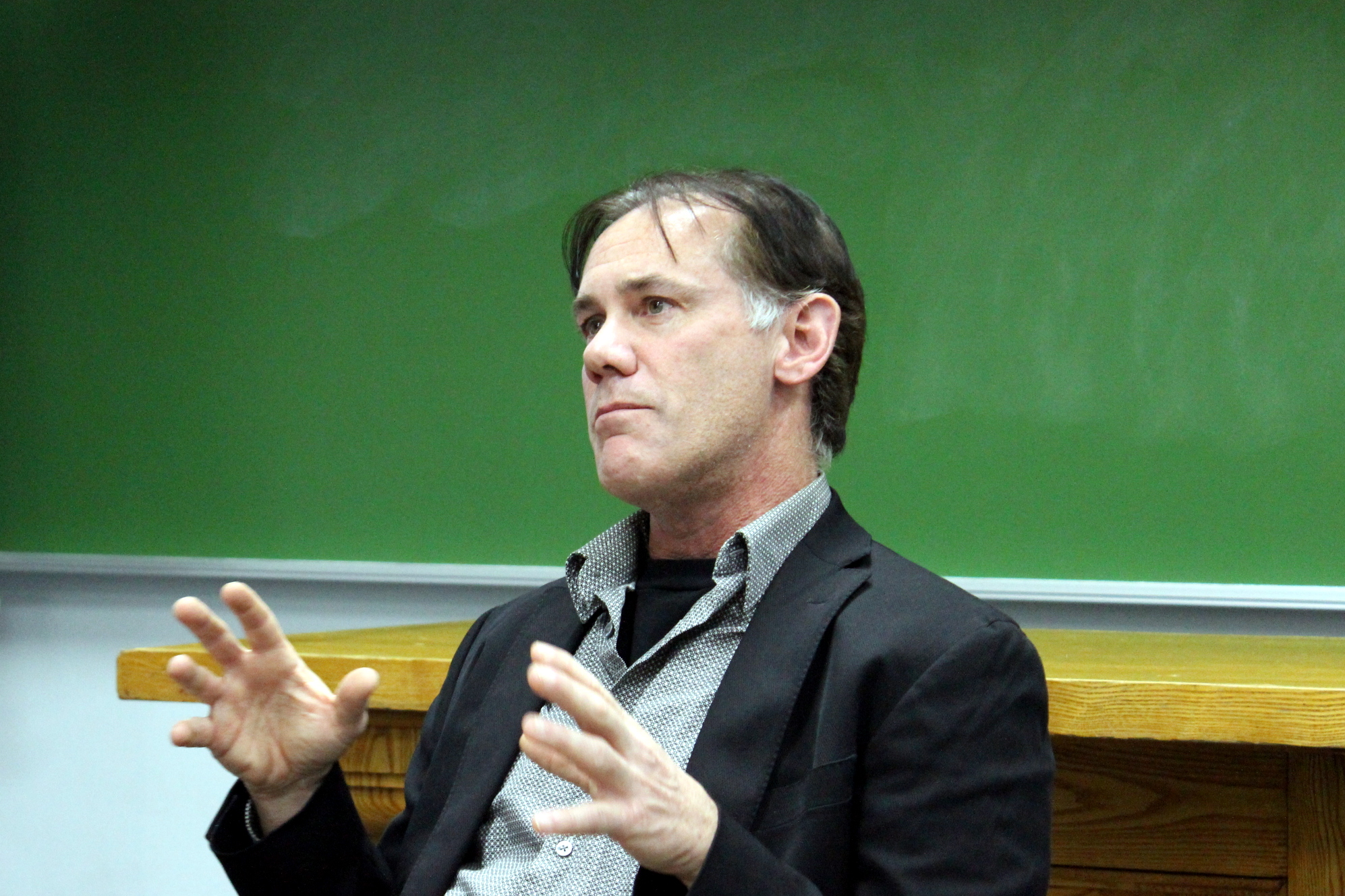Doug Gruner says that a welcoming approach toward refugees is a key to their successful integration into Canadian life, and access to health care is vital to the process.
Gruner practices at the Bruyère Family Medicine Centre in Ottawa. He spoke recently to a class at the Ottawa School of Theology and Spirituality (OSTS). “Once we make a decision to accept refugees,” he said, “it is our responsibility to provide them with health care.”
Honeymoon phase is over
Referring to the Syrian refugees who arrived earlier this year Gruner added, “We are past the honeymoon phase that occurs when refugees first arrive. We are now seeing a lot of physical and mental health issues.”
A lack of familiarity with Canadian society, cultural and language differences, and the trauma that many refugees have experienced can make it incredibly difficult for them to use the health-care system, he said.
For example, many Syrian refugees are suffering from post-traumatic stress disorder (PTSD). “As a result,” Gruner told the OSTS class, “these people may have difficulty sleeping, getting motivated and trusting others.” Quoting Morton Beiser, a psychiatrist with St. Michael’s Hospital in Toronto and a professor at Ryerson University, Gruner said that refugees often deal with these difficulties by retreating into silence, and health-care providers have too often colluded by participating in the silence.
Doctors for Refugee Care
Gruner belongs to a group called Canadian Doctors for Refugee Care which opposed the Harper government when it chose to make drastic cuts to the Interim Federal Health Program (IFHP) in 2012. That program had provided for refugee health services since 1957. MPs and cabinet ministers, including then Immigration Minister Jason Kenney, claimed that refugees were getting “gold-plated” health benefits which were not available to most Canadians.
Gruner and other health professionals fought back. “These were our patients and we had to stand up for them,” he said. Refugees, he added, were getting exactly the same services available to anyone on social assistance. This included visits to the doctor, access to basic medications and supplemental benefits like vision and dental care, but for emergency treatments only. “It was simply not true to describe those services as out of the ordinary or excessive,” Gruner said.
In July 2014, the Federal Court of Canada ruled that the changes to the IFHP violated the Charter of Rights and Freedoms. Early in 2016 the new Liberal government restored the benefits.
Canada needs newcomers
Gruner was asked in the OSTS class whether Canadian health care and service providing institutions can cope with immigration and refugee acceptance numbers at their current levels. He replied that there was a challenge when thousands of Syrian refugees arrived early in 2016. It was overwhelming, especially for providing education and housing services, he said, but that has smoothed out.
Traditionally, he said, that Canada accepts about 250,000 immigrants and 25,000 refugees each year. “Most end up in urban centres where there is more of an opportunity to access health care,” Gruner said. “One of the biggest challenges is interpretation services. In the case of the Syrians we need interpreters who can speak Arabic.”
Private sponsorships work
In the longer term, Gruner said, the more important question is whether Canada can afford not to accept immigrants and refugees. “We are not replacing ourselves as a population so refugees and other immigrants, many of them young people, will have a lot to offer in the future.”
Of the approximately 30,000 Syrian refugees accepted into Canada within the past year, Gruner said, about 1600 have arrived in Ottawa. About 1200 of them have been sponsored by the government and another 400 are privately sponsored, many of them by faith communities. Gruner said those who are privately-sponsored receive more support than is available to refugees who are government sponsored. This includes the welcome upon arrival, social and friendship support and also practical assistance in finding housing and jobs.
“There is an embarrassment of riches available to privately sponsored refugees compared to those sponsored by the government,” he said. “In the future our system needs to evolve to better coordinate our welcoming efforts to include the generous support of private sponsors when we welcome all refugees, including government assisted refugees.”
Like this article? Please chip in to keep stories like these coming.




